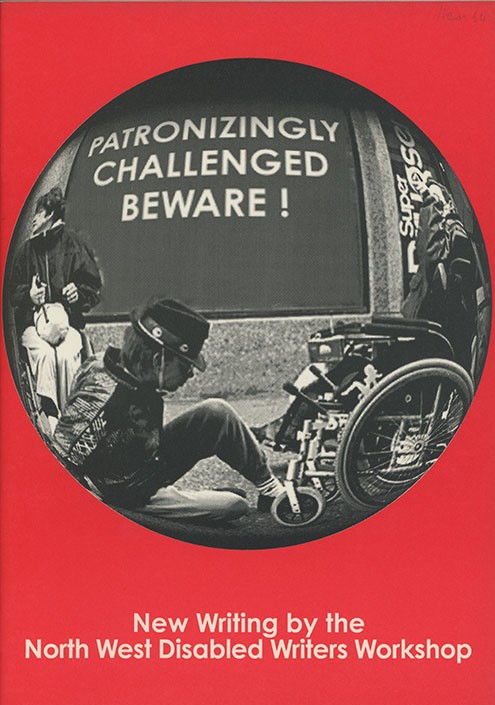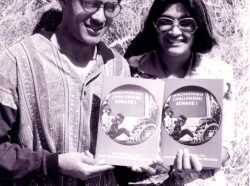“When you’re disabled, life is one long paradox. That’s the reason more disabled people should be involved in the arts — to break that paradox.”
Peter Street
On the surface, disabled writers do not seem to feature heavily in the Commonword archive, but not all disabilities are visible; people may not wish to define themselves as disabled because of enduring social stigma. The writers featured in this archive classed as disabled are those who are those who have openly identified themselves as disabled, those who are openly known to have long-term conditions which would affect their lives day-to-day and those who have appeared in Commonword anthologies by disabled writers. A person’s writing itself may reveal much more about how they are disabled than a self-declaration.
During the early Eighties, Commonword published work by disabled writers such as Victor Irving and Keith Stephens. With with the former, there is more of an emphasis in their writing on the work he has undertaken throughout his life and with the latter, the focus of his writing is blackness and racial justice. The Commonword anthology Poetic Licence includes work by a poet called Peter Street, himself disabled and writing about disability in one of his contributions. This same volume has a mention in its back pages of a Manchester-based project where disabled writers and artists collaborate with non-disabled artists. The project was called Chances and was set up by Street. He also set up a poetry competition asking for entries “broadly on the theme of disablement and/or integration with the able-bodied.” The theme seems to have shifted when examining the work in Patronizingly Challenged Beware! a collection of short stories, poems and scripts published by Commonword’s North West Disabled Writers group in the early Nineties. The writers in Patronizingly...are demanding to be heard and to be treated with humanity. Rainbows in the Ice from 1993, an anthology of writing by disabled people based in the the north west of England, followed on in a similar vein. It is published by Crocus books around the time when there was a great surge in activity from the disability rights movement.



